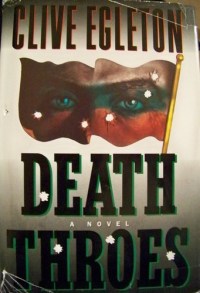A Spy By Nature by Charles Cumming
 Wednesday, February 9, 2011 at 2:45PM
Wednesday, February 9, 2011 at 2:45PM 
First published in 2001
A young man, turned down for employment with the Secret Intelligence Service, is offered a contract position working for SIS as an industrial double agent. Alex Milius is given a position with a British oil company with the expectation that CIA agents posing as employees of an American oil company will recruit him to reveal secrets that will give the Americans a competitive advantage over the Brits in oil exploration. After his recruitment by the CIA, the SIS plans to provide Milius with disinformation to feed to the American agents.
A Spy By Nature is well crafted, offering insight into a type of espionage that is likely more relevant to today's world than traditional cloak-and-dagger stories about governments spying on each other. Cumming provides an interesting look at how industrial espionage (probably more common than most of us realize) might be carried out. Alex is a credible character, filled with the combination of self-importance, uncertainty, and naivete that often characterizes ambitious young men. The supporting characters, however, tend to be less interesting: stereotypical corporate types, spymaster types, and an unforgiving ex-girlfriend type.
While the story maintains interest throughout the novel (I disagree with the reviewers who condemn the book as dull -- this is a novel about the interactions of people, not a 007 story with shootouts or explosions, but that doesn't make it dull), I kept getting the feeling that Cumming was setting up a major plot twist, an unexpected ending that never came. As the story reaches its climax, it all seems a bit anti-climactic. Still, strong writing and a solid main character make this book worth reading, even if it never achieves greatness.
RECOMMENDED
 TChris |
TChris |  Post a Comment |
Post a Comment |  Charles Cumming,
Charles Cumming,  spy in
spy in  Thriller
Thriller 


